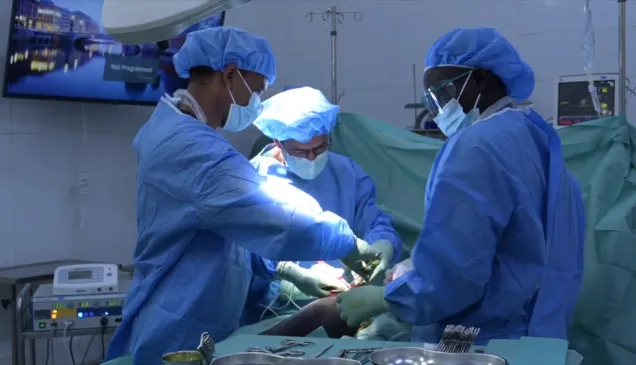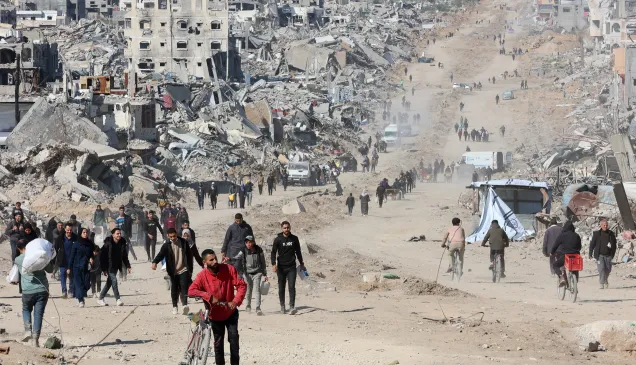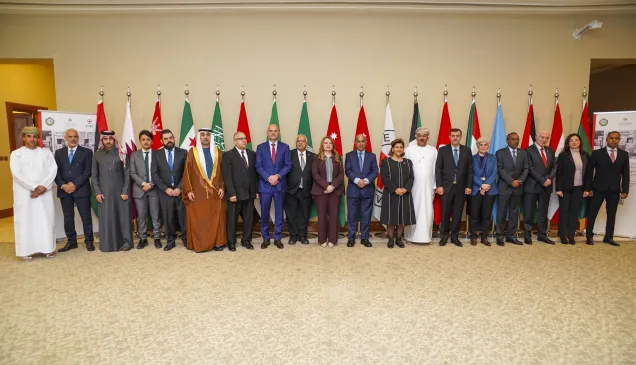ICRC Statement to the 73rd Session of the UN General Assembly, 53rd Plenary Meeting on Agenda item 75 (a) to (c): Strengthening of the coordination of humanitarian and disaster relief assistance of the UN, including special economic assistance.
States have a strong track record of working together in the spirit of humanitarian multilateralism. This month States gathered in Russia to mark the 150th anniversary of the St Petersburg Declaration. Next year we mark the 70th anniversary of the Geneva Conventions of 1949.
The humanitarian rules in the Four Conventions of 1949 were negotiated out of people's experience of armed conflict – as combatants, civilians and people hors de combat. Millions of people enduring armed conflict today need this tradition of humanitarian multilateralism to continue.
Today we draw attention to three priority humanitarian needs that States must fulfill.
Firstly, all States must ensure physical security and safety of civilians.
This is especially important for any State supporting other States or non-state armed groups in coalition warfare. States that supply belligerents with weapons have a special responsibility – they must ensure respect for IHL. The position of these States must be strong: do not transfer arms when serious violations are manifestly occurring, or where there is a substantial risk that they will be committed.
Secondly, States must prevent people going missing, clarify their fate and provide answers to families.
Today we are seeing a global crisis of missing people.
The ICRC is dealing with an enormous caseload of missing persons – some 100,000 people, and that is only the tip of the iceberg. We call on States to fulfill their obligations related to preventing people from going missing in armed conflict including in places of detention. We call on States to seize the opportunity offered by the ICRC's Missing Persons Project to tackle this challenge collectively and decisively.
Thirdly, States must recognize that armed conflict damages mental as well as physical health.
Here we seek a multilateral surge. Several States are already championing a greater humanitarian response. We ask all States to contribute their expertise and resources to tackle this global challenge.
Each of these three priorities or issues has a multi-generational dimension.
The Conduct of hostilities which ignores IHL destroys societies and deprives people of homes, livelihoods, health and education for generations.
Failing to seek out missing people or address mental ill-health resulting from conflicts can exacerbate social and political tensions.
Finally, in order for impartial humanitarian organizations, like the ICRC, to work with States to address these and other pressing humanitarian needs, we need the trust and cooperation of States to work freely and effectively.
Political and security responses to new global threats are having a serious effect on the ability of impartial humanitarian organizations to consistently provide principled humanitarian action.
The ICRC urges all States to address the pressing challenge to neutral, impartial and independent humanitarian action posed by counter-terrorism measures and sanctions regimes.
Impartial humanitarian organizations cannot reach out to people in a timely and effective way if humanitarian action is at risk of criminalization or is hindered by elaborate sanctions procedures and counter-terrorism measures.
The ICRC understands and respects States' sovereign right to safeguard their legitimate security interests – including through counter-terrorism measures. Such measures, however, must be consistent with international law, including IHL.
Increasingly, strict funding conditions and rigid counter-terrorism legislation run counter to the commitments States have made to respect long-established humanitarian principles. This in turn can risk undermining trust with affected people, and with parties to conflict, and can render the provision of principled humanitarian action more precarious.
We call on States to ensure that national legislation and international regimes on counter-terrorism and sanctions include exemption clauses for humanitarian activities of impartial humanitarian organizations. The ICRC stands ready to offer its humanitarian and legal expertise in the elaboration of new rules and regulations pertaining to counter-terrorism issues.
The challenge of preventing, responding to, and recovering from conflicts is immense. But we already have many of the laws, organizations and operational tools at our disposal to achieve sustainable humanitarian impact for millions of people. And States have an impressive record of humanitarian cooperation in law, policy and practice.
The choice to respect the law, reduce suffering and preserve human dignity is a political choice that rests with you as Member States.
We call on all states to recommit to humanitarian multilateralism at this critical juncture.
The ICRC and the Red Cross and Red Crescent Movement stands ready to play its part. We look forward to meeting with States on these and other important humanitarian priorities at the thirty third International Conference of the Red Cross and Red Crescent in Geneva next year.



